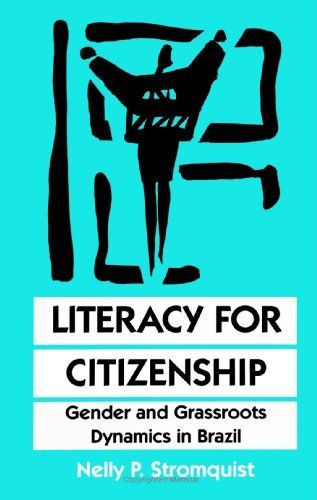
Literacy for Citizenship Gender and Grassroots Dynamics in Brazil
This book explores the involvement of nineteen women in an emancipatory literacy program conducted under the administration of Paulo Freire in Sao Paulo, Brazil. The study presents the classroom experiences of these women and the psychological, cognitive, and behavioral changes they undergo over a three-year period. Their low limited acquisition of literacy and their limited reading and writing practices are explored in the context of their circumscribed environment of poverty, living in families and societies that place definite boundaries and expectations regarding the everyday tasks they must perform. The analysis of the women's individual experiences is linked to a political and structural inquiry into the grassroots groups and the political party implementing the literacy program. In this way, contradictions, ambiguities, and antagonisms within and among social forces regarding literacy for social change are made transparent. Literacy acquisition is shown to be a process fraught with multiple exogenous demands that distance these women from the constant exposure to print required for literacy competence.